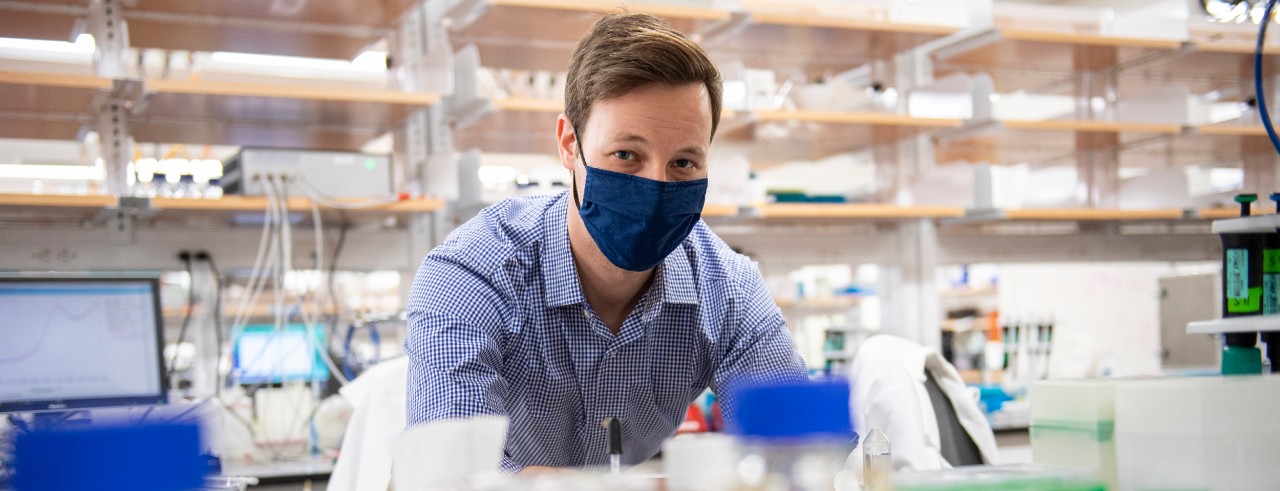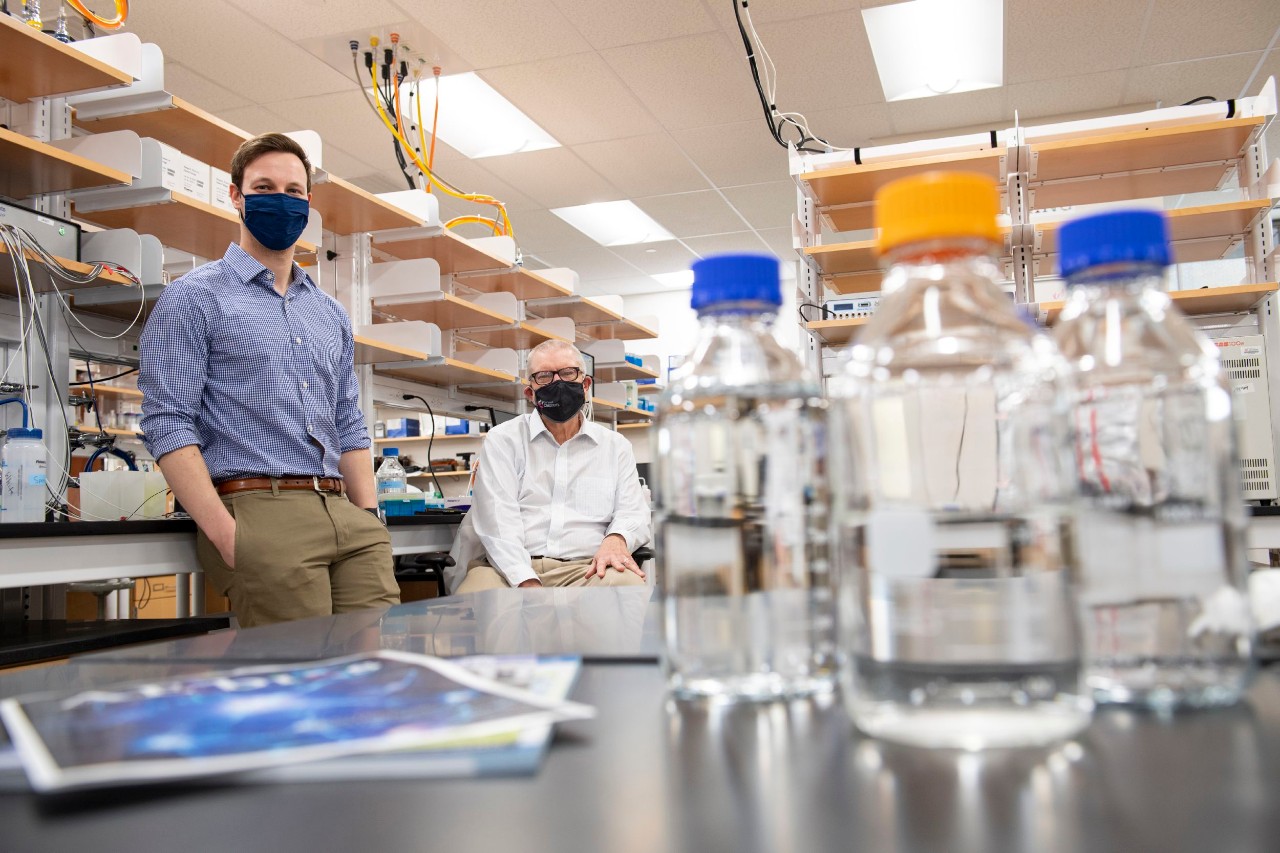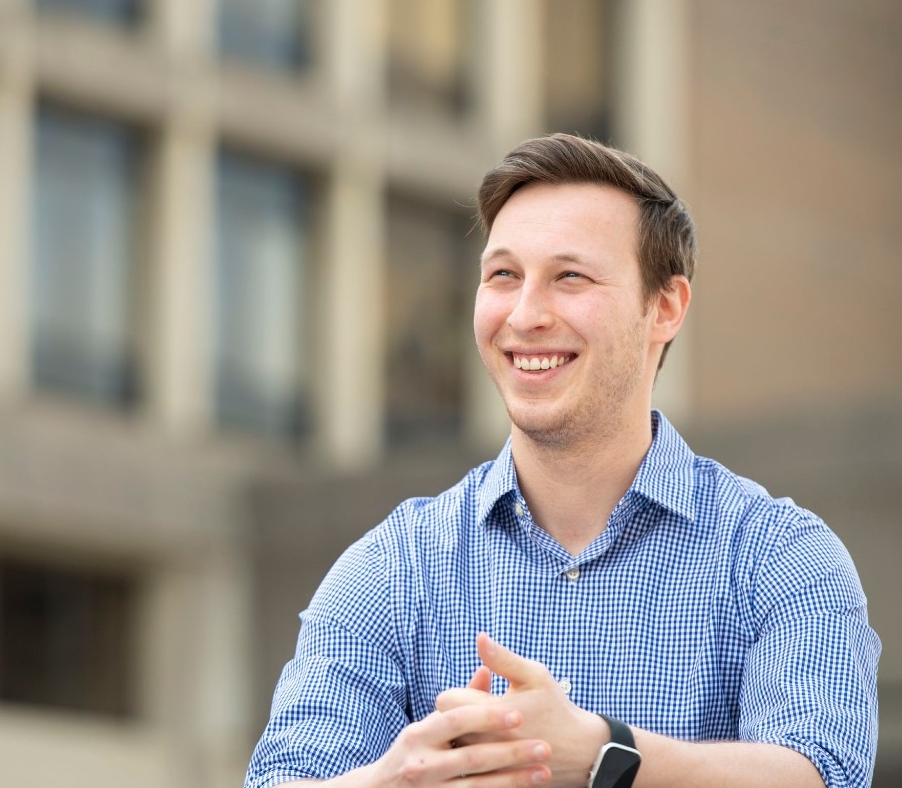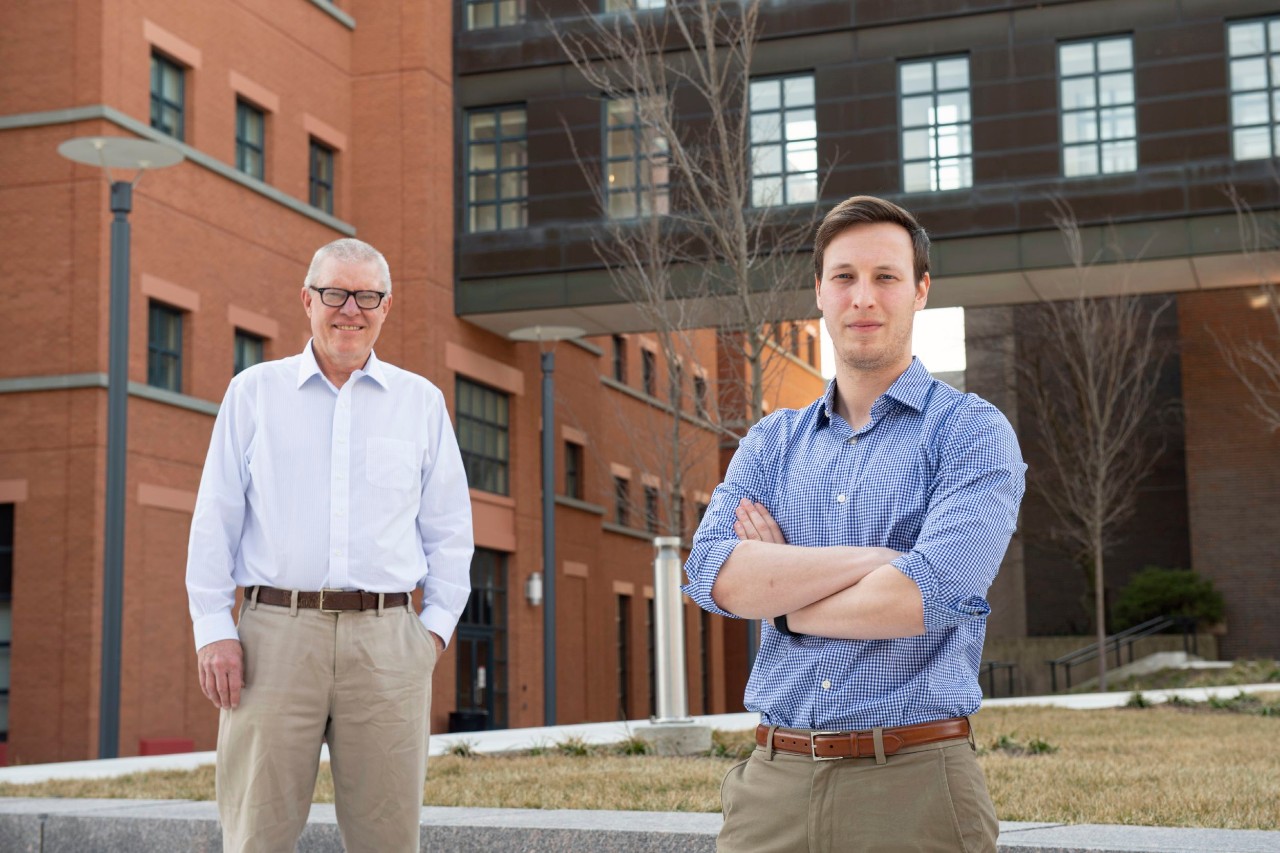
UC chemists use supercomputers to understand solvents
Research could contribute to green energy, better batteries
To understand the fundamental properties of an industrial solvent, chemists with the University of Cincinnati turned to a supercomputer.
UC chemistry professor and department head Thomas Beck and UC graduate student Andrew Eisenhart ran quantum simulations to understand glycerol carbonate, a compound used in biodiesel and as a common solvent.
They found that the simulation provided detail about hydrogen bonding in determining the structural and dynamic properties of the liquid that was missing from classical models. The study was published in the Journal of Physical Chemistry B.
The study demonstrates UC's commitment to research as described in its strategic direction, Next Lives Here.

UC student Andrew Eisenhart, left, and UC chemistry professor Thomas Beck used quantum simulations to study a common industrial solvent. Photo/Colleen Kelley/UC Creative + Brand
Glycerol carbonate could be a more environmentally friendly chemical solvent for things like batteries. But chemists have to know more about what’s going on in these solutions. They studied the compounds potassium fluoride and potassium chloride.
“The study we did gives us a fundamental understanding of how small changes to a molecular structure can have larger consequences for the solvent as a whole,” Eisenhart said. “And how these small changes make its interactions with very important things like ions and can have an effect on things like battery performance.”

UC student Andrew Eisenhart was lead author of a study published in the Journal of Physical Chemistry B that used quantum simulation to understand a solvent. Photo/Colleen Kelley/UC Creative + Brand
Water is a seemingly simple solvent, as anyone who has stirred sugar in their coffee can attest.
“People have studied water for hundreds of years — Galileo studied the origin of flotation in water. Even with all that research, we don’t have a complete understanding of the interactions in water,” Beck said. “It’s amazing because it’s a simple molecule but the behavior is complex.”
For the quantum simulation, the chemists turned to UC’s Advanced Research Computing Center and the Ohio Supercomputer Center. Quantum simulations provide a tool to help chemists better understand interactions on an atomic scale.
“Quantum simulations have been around for quite a while,” Eisenhart said. “But the hardware that’s been evolving recently — things like graphics processing units and their acceleration when applied to these problems — creates the ability to study larger systems than we could in the past.”
“How do ions dissolve in this liquid compared to water? First we had to understand what the basic structure was of the liquid,” Beck said.
The research was funded by a grant from the National Science Foundation.
Every lithium ion battery contains a solvent. Finding a better one could improve energy storage and efficiency.
“The world is moving in a sustainability direction. It’s pretty clear that wind and solar will be two major contributors along with other green energy,” Beck said. “But the energy generated is intermittent. So you need methods for large-scale energy storage so that if it’s cloudy for two days, a city can stay running.”
The paper was selected as an editor’s choice by the American Chemical Society, publisher of 78 journals.
“It’s a broad interest paper that is widely applicable to the chemical community,” Beck said. “This is a new forthcoming area. We need these quantum simulations to understand fundamental properties of liquids.”
Featured image at top: UC student Andrew Eisenhart peers over a bench in a chemistry lab. Photo/Colleen Kelley/UC Creative + Brand

UC chemistry professor and department head Thomas Beck, left, and UC student Andrew Eisenhart collaborated on a study using quantum simulation to understand a solvent. Photo/Colleen Kelley/UC Creative + Brand
Next Lives Here
The University of Cincinnati is leading public urban universities into a new era of innovation and impact. Our faculty, staff and students are saving lives, changing outcomes and bending the future in our city's direction. Next Lives Here.
Stay up on all UC's COVID-19 stories, or take a UC virtual visit and begin picturing yourself at an institution that inspires incredible stories.
Related Stories
It’s a mindset: Meet the visionaries redefining innovation at...
December 20, 2024
Innovation is being redefined by enterprising individuals at UC’s 1819 Innovation Hub. Meet the forward thinkers crafting the future of innovation from the heart of Cincinnati.
UC’s spring Visiting Writers Series promises robust, diverse...
December 20, 2024
Lovers of literature, poetry and the written word can look forward to a rich series of visiting writer presentations, offered through UC’s College of Arts and Sciences department of English, coming this spring.
UC students well represented in this year’s Inno Under 25 class
December 20, 2024
Entrepreneurialism runs through the veins of University of Cincinnati students, as confirmed by the school’s strong representation in this year’s Inno Under 25 class.
